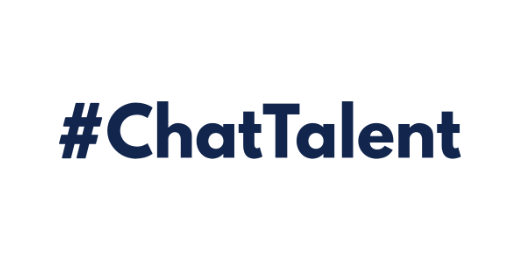The 7 key elements to find footing during a severe burnout
In this blog, I’d like to share my own experience and why mental health starts with nourishing yourself. This is also the reason how it became my restored purpose in life to be able to build technology that helps employees to become resilient in the workplace.
While I reflect back on how I recovered in the last year, I found 7 key elements to help me find my footing;
1. Recognize the signs don’t ignore them.
I have always been in the trenches as an entrepreneur. I worked obsessively focused and neglected my own mental health. After my breakdown, I responded by switching on ‘survival mode’ by imagining and trying to convince myself that everything still was okay with me.
Well, it was far from okay, instead of taking the time to rest and take good care of myself by work-out, I was still caught for months running behind my own tail, trying to fix everything by myself. How many things I tried, it did not work out.
I had to accept the situation as it was.
“Yesterday, you said tomorrow” —
2. Ask for help, really do, it’s the key
Part of my personal challenge has been to ask for help. My autopilot behavior was that I felt myself a ‘cat with 7 lives’. When I finally made the decision to ask for help at my GP and psychologist, things moved into a more stable situation and allowed me to get an overview and work towards a step-by-step recovery. But first, it is time to create your own routine. Because in the very few months of recovery, plans or great ambitions did not get me anywhere.
3. Ambitions and plans are for later
I kept on pushing during my survival for setting up new initiatives, talking to tons of people and building new decks and trying out new roles that were not really a fit in hindsight. When I accepted my situation, I took the time to travel and spend a lot of time with my four children when they were with me. Living in the present and looking into the blue eyes of my blond-haired children, gave me the best motivation to start looking around me for ways to get better.
4. Build a routine, it accumulates your recovery
One of my closest friends that I know a long time from my tenor at the Royal Marines, told me that it would be best to focus on creating a daily routine that consists of just the very few activities that give you energy. For me, it sounded crazy at first to put on my list for the day to iron 5 shirts, see my kids, try reading a book, or biking 10 kilometers. But if you keep fulfilling small tasks you’ll be getting more insights in your ultimate flow for the day. This also taught me exactly what and when I was able to deliver.
5. Rationalize your network, focus on a small team
At first, I spent too much time talking with people who weren’t interested in helping with my situation, they were just there to get my business advice for their personal gain and nothing else. I humbly listened to their business case and advised them without expecting anything in return. Why? Because business requires skill and people are my passion. Often, I felt like I was always quick to give and slow to take.
No complaints, this is how it works and that’s why you need a small team around you who are always there for you, no matter what.
I set up with the help of my psychologist and best friend a team of 10 people, who I could ask questions or ask for help, no matter what time of the day.
6. Don’t get trapped in the victim role: it’s the biggest learning experience
The most important aspect that made me keep moving is that I stepped out of the victim role. Once I did that I took ownership of my time and energy to focus on the important targets that get me the most ROI health-wise and to instill some peace of mind.
During my recovery, it was quite a challenge to keep believing in this because I could be highly emotional, frustrated and even aggressive. But by looking at it as a learning experience and disregarding the opinion of nay-sayers or toxic people, allowed me to stay on track.
“It is impossible to build a tribute to success on a fundament of excuses” —
7. Do the things you can influence exceptionally well
Even though there seems to be nothing at all left, there is one last element I’d like to share: there are always things that you can influence.
As part of my process to find a solid daily routine, I decided to focus just on my four children and was able to give them a lot, not in a materialistic way, but by loving them, talking to them a lot and being there for them whenever there was an opportunity.
By focusing on the right people, the right routines, and the right drivers of energy and the conviction that I still make mistakes, I was able to claw back in the right direction and am grateful for this greatest learning experience I was able to go through. I found my new purpose in Keypath as the employee well-being platform to respond in a better way to stress and other health challenges. And by working as a coach for tech startups, entrepreneurs and divorced fathers.
I am grateful for that and that’s why I will share my experience with others to prevent things go unexpectedly in the wrong direction. This is clearly a different proposition than what we have been able to push for in a previous journey when we were creating a leader in employee onboarding, a “system for productivity”.
The mission is now much deeper and centered around performance with a true purpose.
“If you wake up at some day feeling heroic amongst the ruins, you will become a hero for those who really matter. The rest is not relevant” —
About Gerrit Brouwer
Gerrit Brouwer (40 years old) is a serial entrepreneur and co-founder in several HR Technology companies. His passion is to work with people and technology. He is a father of four children and lives part-time in Toronto, Canada and Friesland, The Netherlands. Gerrit is reachable on Instagram @gerrardhisjourney2.0 or on LinkedIn.
Appendix — Entrepreneurs and social security
Whilst for employees working in a company with an employment contract, there is the world of support available, regarding psychologists, special support, reintegration consultants, you name it. All being paid for, in some cases these reintegration processes with employees with burnouts costs over 2 year of payroll including pay. For the entrepreneur there is actually close to nothing available to get back on your feet, yeah, only very expensive solutions that don’t work. Luckily thanks to the help of close friends, my best friend and co-founder, and family, I was able to go through a transformative process of learning. That’s exactly why I am giving back to people with similar or related problems.






